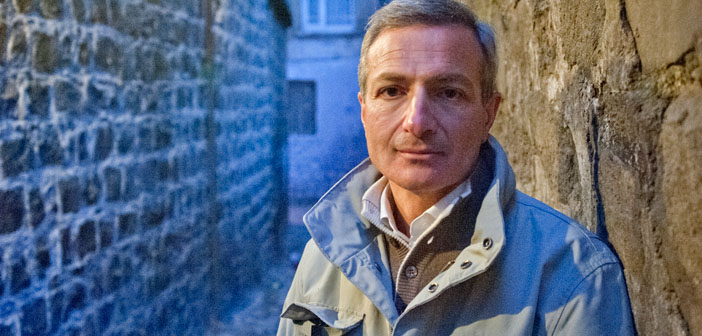Fransa mahkemesinin ‘soykırım kararı’ ne anlama geliyor?


Holokost’u inkâr eden bir Fransa
vatandaşının açtığı davada, II. Dünya Savaşı’nda işlenen
insanlığa karşı suçların inkârını cezalandıran yasanın
Anayasa’ya aykırı olduğunu öne sürüyordu. Böyle bir dava,
ister istemez Fransa’da Ermeni Soykırımı’nı tanıyan yasayı
da gündeme getirmiş oldu.
Mahkeme, yasanın Anayasa’ya aykırı olmadığına hükmetti. Türkiye basınındaysa, Fransız mahkemesinin kararından yola çıkarak, Fransa Parlamentosu’nun Ermeni Soykırımı’nı tanıdığı 2001 tarihli yasanın iptalinin yolunun açıldığı tartışıldı. Davayla ilgili oluşan bilgi kirliliğini gidermek için, uluslararası hukuk uzmanı ve eski Uluslararası İnsan Hakları Federasyonu Genel Sekreteri Philippe Kalfayan ile konuştuk.
Fransa Anayasa Konseyi’nin aldığı karar, tam olarak nedir?
En başa gidersek, bu dava Holokost’u inkâr ettiği için Fransız mahkemeleri tarafından iki defa yargılanıp suçlu bulunan bir Fransa vatandaşıyla ilgili. Bu kişi, Şubat 2015’teki ikinci mahkûmiyetinden sonra, Gayssot Yasası olarak bilinen insanlığa karşı suçların inkârını suç sayan özel yasanın hükümlerine, anayasal yollardan itiraz etti. Bu yasal başvuru, Fransa’daki temyiz mahkemesi tarafından kabul edildi ve karar için Fransa’daki Anayasa Konseyi’ne iletildi. Yapılan itiraz, hakların eşitliği temel prensibine dayanıyordu, yani Holokost’u inkâr etmek suçken, Ermeni Soykırımı gibi diğer insanlığa karşı suçları inkâr etmek neden değil diye soruyordu. Oldukça yerinde olan bu soru, bir süredir beklemedeydi.
Peki, Ermenilerle Türkler, bu davaya ne bağlamda dahil oldular?
Öncelikle, bu davanın taraflarını belirtmek gerekirse: Savunma tarafı, aynı avukat tarafından temsil edilen ırkçılık ve antisemitizm karşıtı sivil toplum kuruluşları, ailelerini temsil eden Fransalı Ermeni iki avukat, Türk Tarihi Eğitiminde Tarafsızlık Derneği… Bu son saydığım STK, temel olarak Fransa hükümetinden Ermeni Soykırımı’yla ilgili ders kitaplarındaki tüm referansları kaldırmasını talep ediyor.
Fransa’daki Ermenilerin haklarını savunan CCAF adlı örgüt, şaşırtıcı bir şekilde davaya müdahil olmadı; hâlbuki bu dava, haklarını savunabilecekleri ender mecralardan biriydi. İki Fransalı Ermeni avukat, Gayssot Yasası’nın, bu yasanın hakların eşitliği prensibini ihlal ettiği gerekçesiyle kaldırılıp, yerine, bütün soykırım ve insanlığa karşı suçların inkârını suç sayacak daha kapsayıcı bir yasanın yapılmasını önerdi. Fakat iki avukatın talebindeki sorun, önerilerinin yanlış bir değerlendirme üzerine kurulu oluşuydu. Bu yanlış değerlendirme, Fransa Parlamentosu’nun Ermeni Soykırımı’nı tanıdığı 2001’deki yasanın hüküm ifade edici olduğunu düşünmekti. Aynı yanlış değerlendirme, Boyer Yasası olarak da bilinen ve 2011’de yine bu iki avukattan biri tarafından hazırlanmış olan yasanın ilk taslağında da yapıldı. Açıkça söylemek gerekirse, Fransa Parlamentosu’nun Ermeni Soykırımı’nı tanıdığı 2001’deki yasa, tabiatı gereği tamamen siyasi deklaratif bir yasa ve yasal hiçbir bağlayıcılığı yok. Diğer yandan, davaya müdahil olan diğer STK, Türk Tarihi Eğitiminde Tarafsızlık Derneği ise, tabii ki Türkiye hükümetinin denizaltısı olarak iş yaptı.
Fransa Anayasa Konseyi’nin aldığı kararın Avrupa İnsan Hakları Mahkemesi’nin Perinçek – İsviçre Davası’nda aldığı kararın benzeri olduğunu düşünüyor musunuz?
Fransa’daki karar, aynı hukuki meseleyle ilgili değil; fakat her ne kadar Fransız mahkemesi Holokost’tan veya soykırımdan bahsetmemiş olsa da, aldığı kararda Holokost’un biricik olmasıyla ilgili olarak Perinçek Davası’yla aynı sonuca vardı. Esasında bu konuda yorum yapanların sıklıkla unuttuğu bir şey var ki, Gayssot Yasası’nın kendisi dahi, asla Holokost’tan bahsetmez. Gayssot Yasası’nın hükümleri, Nuremberg Uluslararası Askerî Ceza Mahkemesi’nin II. Dünya Savaşı sırasında işlenen insanlığa karşı suçları mahkûmiyet kararını inkâr edenleri cezalandırmayı öngörüyor. Bu suçlar sadece Yahudileri etkilemiş olmasa da, çoğu insanın aklına bu şekilde yer etmiş durumda.
Anayasa Konseyi’nin kurduğu mantık AİHM’nin Perinçek Davası’nda kurduğuna benziyor, öyle ki Nuremberg’de mahkûm edilen insanlığa karşı suçların inkâr edilmesi, otomatik olarak ırkçılığı ve antisemitik düşünleri körükleyen ifadeler olarak kabul ediliyor; özellikle de Fransa gibi bu suçların işlendiği ülkelerde.
Anayasa Konseyi’nin aldığı kararın, 2001’de Fransa Parlamentosu’nun Ermeni Soykırımı’nı tanıdığı yasanın iptalinin de yolunu açtığına yönelik bir tartışma doğdu, bu haklı bir tartışma mıdır?
Bu bahsettiğiniz, zaten Türk Tarihi Eğitiminde Tarafsızlık Derneği’nin mahkemede talep ettiği şey. Bu talep, Anayasa Konseyi tarafından reddedildi; çünkü hâkimlerin ele aldığı vaka, 2001’deki Ermeni Soykırımı yasasının Anayasa’ya uygun olup olmadığı değildi.
Türk hükümeti, bazı STK’lar aracılığıyla ileride bu yasayı yeniden temyiz etmeye çalışacaktır. Ancak, bu yasa, siyasi bir deklarasyon olarak değerlendirildiği sürece, ki mevcut durumda böyle, bu çabaların başarı şansı yok. Şayet bir gün Fransız mahkemeleri bir Fransa vatandaşını Ermeni Soykırımı’nı inkâr etmekten bu yasa çerçevesinde mahkûm ederse veya bu deklaratif yasayı temel alan bir soykırımı inkâr yasası yapılırsa, işte o zaman böyle bir risk ortaya çıkar. Bu çok kolay anlaşılabilecek bir şey: Soykırım bir suçtur ve suçun niteliğine ve doğasına dair sadece bir yargıç hüküm oluşturabilir. İsviçre mahkemelerinin Perinçek’i mahkûm ederken, bu kişinin ifadelerini mahkûm etmek için soykırım suçunu ileri sürdüğünü hatırlatırım. AİHM ise bu soykırım savını değil, Perinçek’in saldırgan ifadelerine karşılık verilen orantısız bir cezai yaptırımı mahkûm etti. Sonuç olarak, İsviçreli yargıçların soykırım savı geçerliliğini korurken, inkârcı söylemin, özellikle de Perinçek vakasında, cezai yaptırımı hak etmediği kanaatine varıldı.
Fransa Parlamentosu, ileride bir Ermeni Soykırımı inkâr yasası çıkarmak isterse, önlerindeki seçenekler nelerdir? Anayasa Konseyi’nin bu son kararının, böyle bir yasa ihtimaline etkisi olur mu?
Tabii ki bu kararın belli bir etkisi olacaktır. Ben kişisel olarak Ermeni Soykırımı inkârını konu alan yasa tasarısı seçeneklerinin şu an için neredeyse hükümsüz olduğunu düşünüyorum. Fransız Ermeni örgütlerinin inkâr davalarında hâlâ hukuki takibat yapma imkânı bulunuyor. AİHM de 15 Ekim’de verdiği Perinçek kararını bunun üzerine kurdu; öyle ki, Ermeni Soykırımı’nın, Ermeni kimliğinin bir parçası olup, soykırım gerçeğinin inkârının, Ermenilerin onurunun aşağılanması anlamına gelir dedi. Ne var ki, şayet ileride Türkiye’deki gibi, Ermenilere yönelik daha saldırgan, nefreti körükleyici bir inkâr söylemi ortaya çıkarsa, böyle bir inkâr yasası seçenek olabilir. Bugün için böyle bir ortam yok. Ermeni Soykırımı, Fransa ve dünya genelinde bilinen, kabul edilmiş bir gerçek. Fransız hükümeti de böyle bir yasa geçirmek konusunda niyetli değil.
Ama şunu söylemeliyim: Hem AİHM’nin, hem de Fransa Anayasa Konseyi’nin mantığı sorgulanmalı ve sorgulanabilir. Her kim işledi ve her nerede işlendiyse işlensin, uluslararası bir suç evrenseldir. Bu suçları önlemek ve engellemek, her devletin mecburiyetidir. İki mahkeme de doğrudan ve kamusal olarak soykırıma teşvik bağlamında, nefret söyleminin cezalandırılması gerekliliğini değerlendirmeye almadı. Gelecekte verilecek savaş da bu. Eğer devletler insanlığa karşı suçları engellemek istiyorlarsa, evrensel olarak ‘nefret söylemi’nin suç olduğunu kabul etmeli ve bu tür söylemin suça teşvik etmesini engellemeli.


